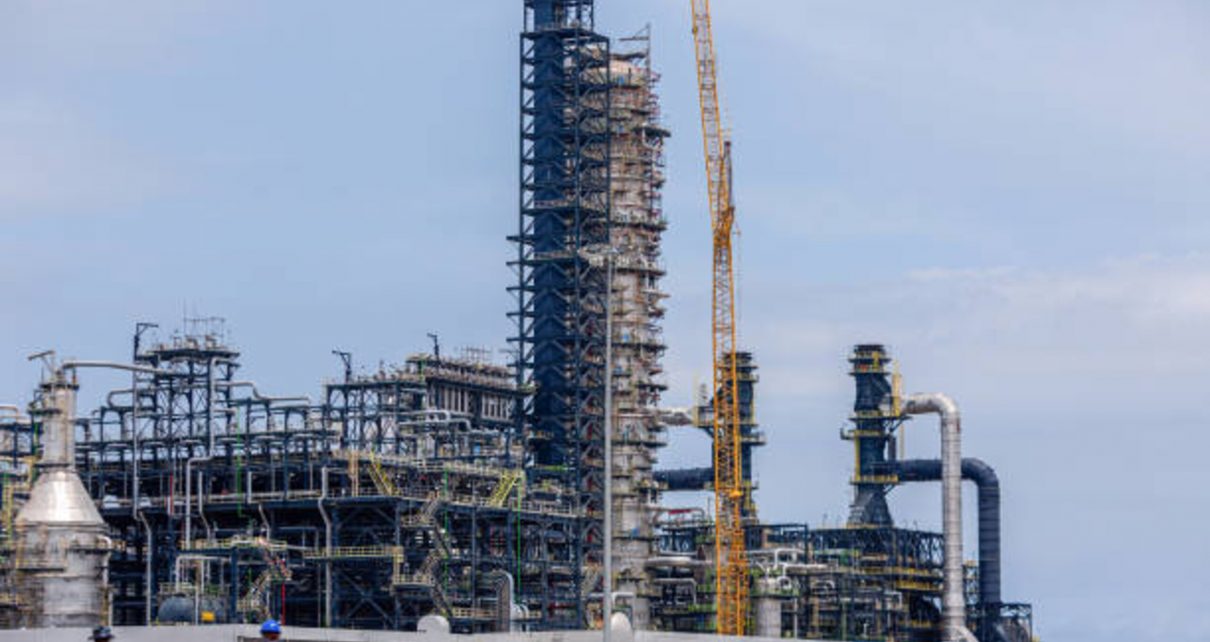Nigeria’s Dangote oil refinery, funded by Aliko Dangote at a cost of $20 billion, is set to commence test runs potentially this week following the arrival of its sixth crude cargo on Monday, as disclosed by company officials. The refinery, with a capacity of 650,000 barrels per day (bpd), marks a significant milestone after enduring years of construction delays.
“The refinery’s initial test runs may kick off this week after receiving its sixth crude cargo today,” a company representative mentioned, highlighting the significant progress.
Located at Lekki on the outskirts of Lagos, Africa’s largest oil refinery project promises to transform Nigeria’s fuel dynamics. Currently reliant on imports, the Dangote refinery aims to make the nation self-sufficient and even export fuel to neighbouring West African countries, reshaping oil trade dynamics in the Atlantic Basin.
“This marks a crucial stride toward Nigeria’s quest for self-reliance in fuel production and its potential to become a key exporter in the region,” noted the spokesperson.
The recent delivery of 1 million barrels from the Agbami field adds up to a total of 6 million barrels received since the first cargo arrived in December, further solidifying the refinery’s momentum toward operation.
“We anticipate initiating the startup process for the crude distillation unit this week, the cornerstone of the refinery’s operations,” a senior company official shared anonymously, emphasizing the imminent commencement of crucial operations.
“While saleable products are expected to emerge within the first operational week, the refinery will gradually augment its output and product variety as each department is successfully commissioned,” the executive added.
However, industry experts caution that transitioning from test runs to full-capacity production of high-quality fuels may span several months, involving meticulous evaluations across diverse refining units, including gasoline and diesel production.
Dangote, outlining its plans, aims to commence refining at 350,000 bpd initially, with aspirations to scale up to full-scale production later in the year.


